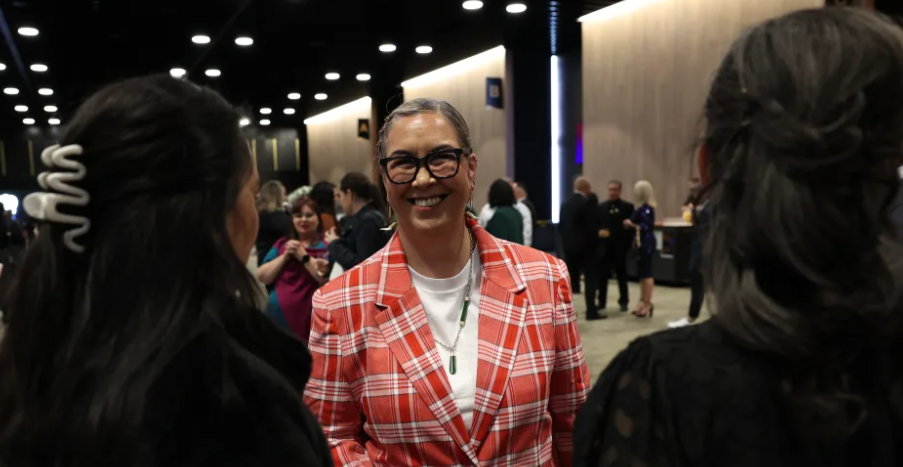
Today marks the start of Te Wiki o te Reo Māori, and this year the kaupapa is celebrating its 50th anniversary.
Aotearoa celebrated its first Māori Language Day in 1972, following a petition signed by more than 30,000 people calling for te reo Māori to be taught in schools.
By 1975, the day had grown into a week-long event, and since then Te Wiki o te reo Māori has become one of the most recognised public celebrations and nationwide movements in the country.
Te Taura Whiri i te Reo Māori (Māori Language Commission) chief executive Ngahiwi Apanui-Barr said the milestone was a tribute to generations who fought for the language.
"Māori Language Week existed before te reo was an official language. It existed before the Māori Language Commission (Te Taura Whiri) did. That's how powerful this kaupapa is - it was built by the people."
Apanui-Barr said that over the decades, Te Wiki has grown from grassroots marches and jingles on radio, to nationwide campaigns, bilingual broadcasts and a one-million-strong online Māori Language Moment.
"We've gone from a time when te reo Māori was barely heard in public, to a time when it's sung in stadiums, spoken in workplaces and celebrated in our homes."

"Language anxiety is a real thing and that is one of the bigger things that kills people from wanting to use Te Reo Māori," she said.
"People can get anxious about their pronunciation or their ability. Te Wiki gives people the licence to just give it a go. You never know when that might be the turning point for someone."
She said while many fluent speakers had embraced month-long challenges such as Māhuru Māori, Te Wiki was aimed at non-Māori and beginners, creating a safe space for anyone to start their reo journey.
"Our role is to lead and coordinate the Maihi Karauna (The Crowns strategy for Māori Language Revitalisation), which is around the kaupapa, let the language be heard and seen and used as much as possible throughout the country,"
"Te Wiki is the week that everybody gets to do that without being whakamā, without being embarrassed," she said.
Higgins encouraged everyone to "give it a go," and said her wero for the country was to "toitū te reo Māori, don't be embrrassed and kōrero Māori as much as you can".
"Embrace it as a celebration of who we are and our identity as Aotearoa."

"My hope is that in 50 years' time our tamariki and mokopuna are high-functioning bilinguals. Around the world, multilingualism is the norm, I want that to be our reality too."
This year's theme was a follow on of last years, Ake Ake Ake - Forever and Ever, a testament to the enduring resilience and evolution of a taonga that had withstood the test of time, Te Taura Whiri said.
"Ake Ake Ake means 'forever and ever' or 'everlasting'. It represents the endurance of our language, the ability of our language and its speakers to adapt to their conditions, and the commitment of communities around Aotearoa for te reo Māori."
Apanui-Barr earlier told RNZ the significance of this kaupapa was that they wanted the language to be seen as New Zealand's forever language.
"Our enduring language, a language that, no matter what's trying at it, manages to survive. And it survives because people love it and because people care about it."
Te Wiki o te reo Māori is jam-packed with a range of different kaupapa, all designed to encourage and platform the use of te reo Māori.
These include a reo parade along the Wellington waterfront on Monday, a webinar series, and the launch of Pūtahi Mahara, a digital time capsule where people can record messages for future generations, to be opened in 2075.
This year they have also launched '50 Wero Reo Māori', a list of 50 reo challenges for people of all levels, ranging from learning new kupu, to sharing waiata or posting reo moments online.













